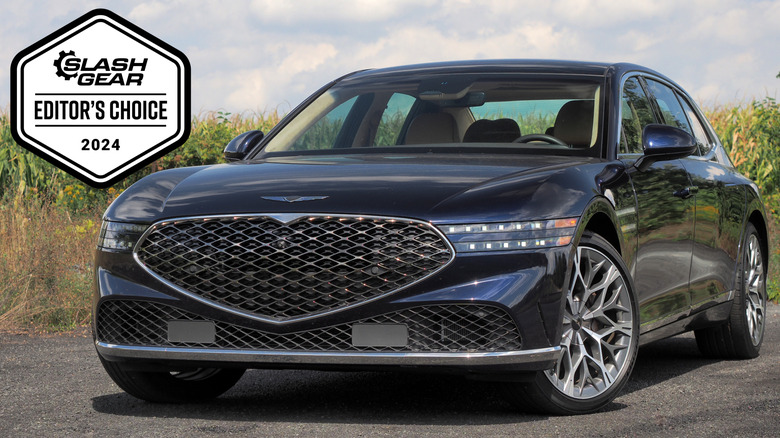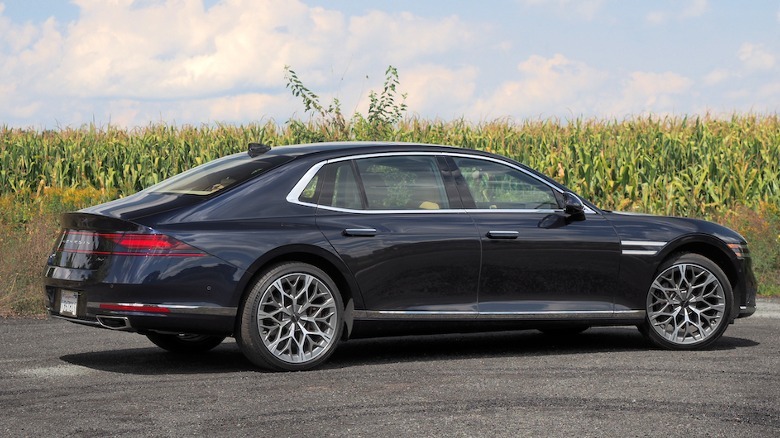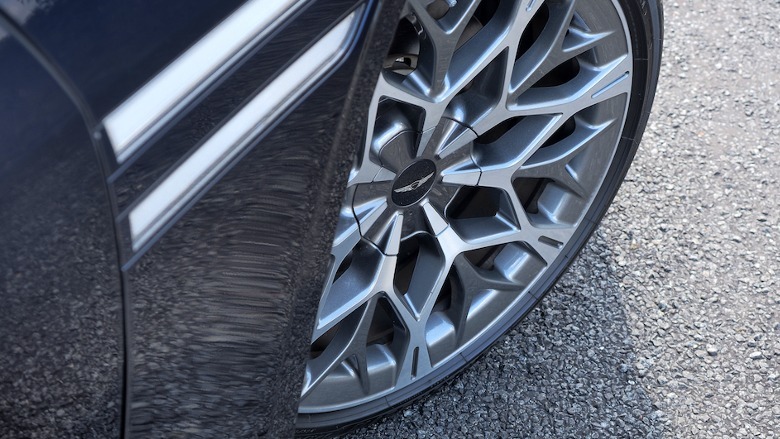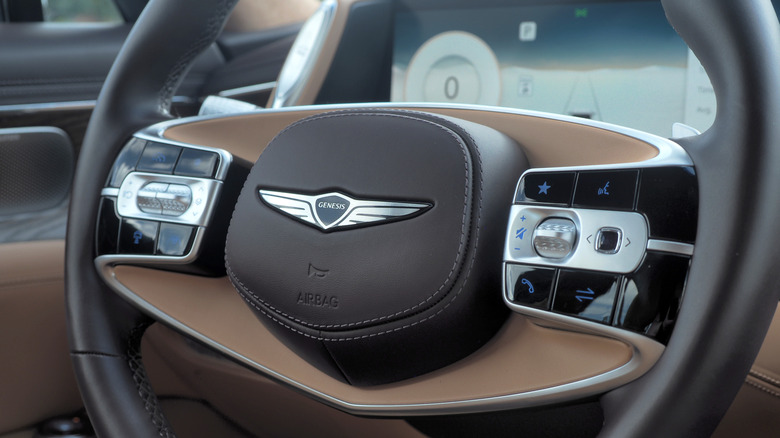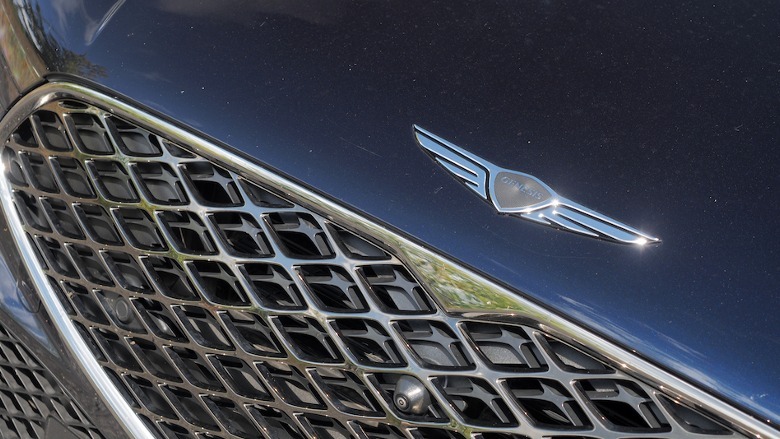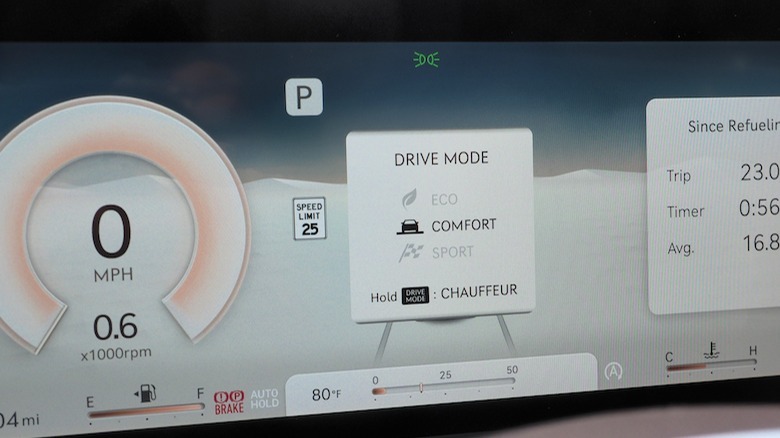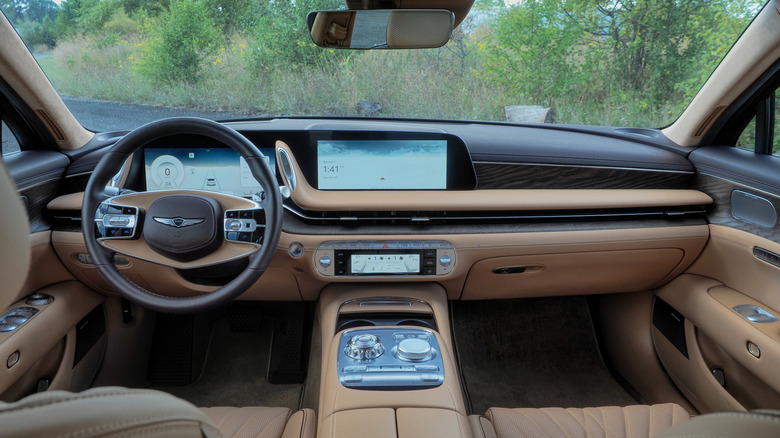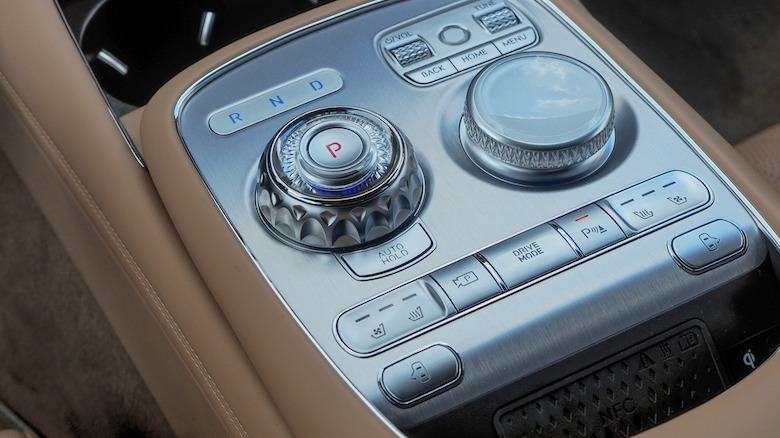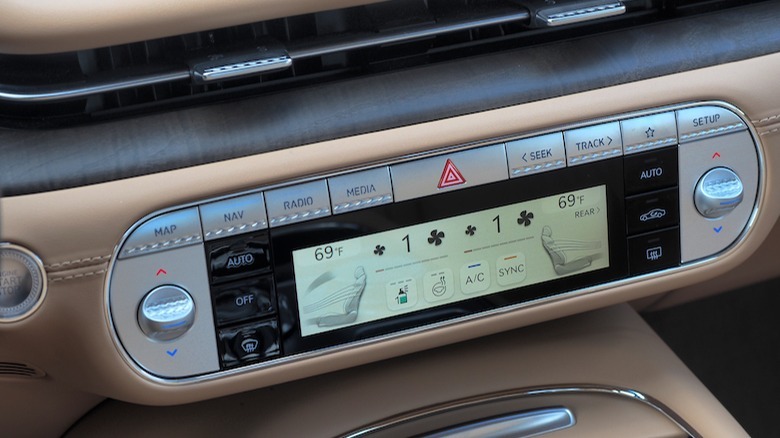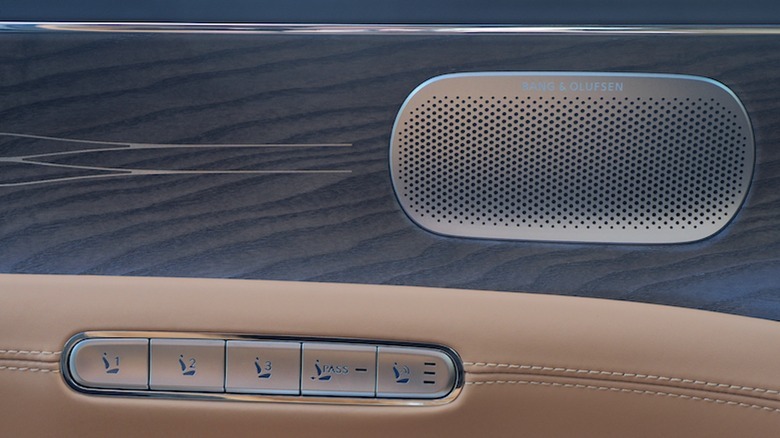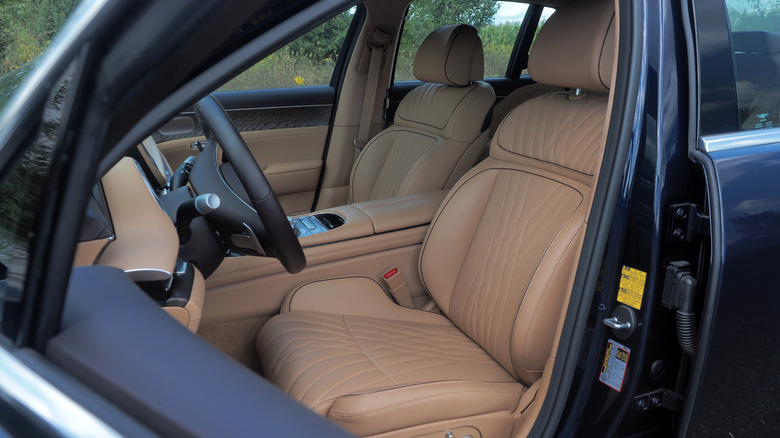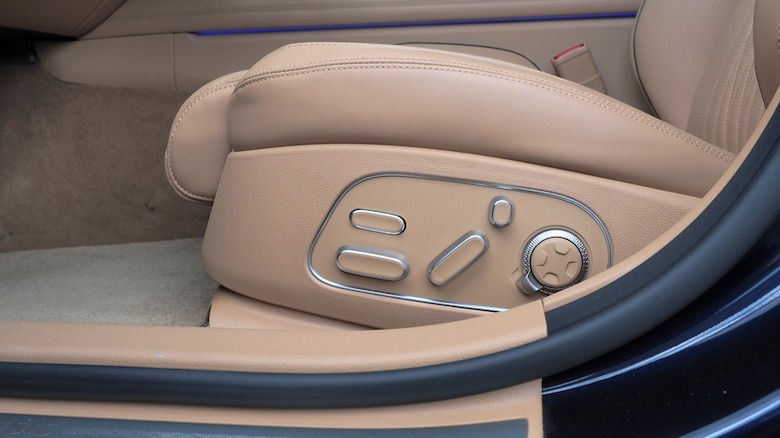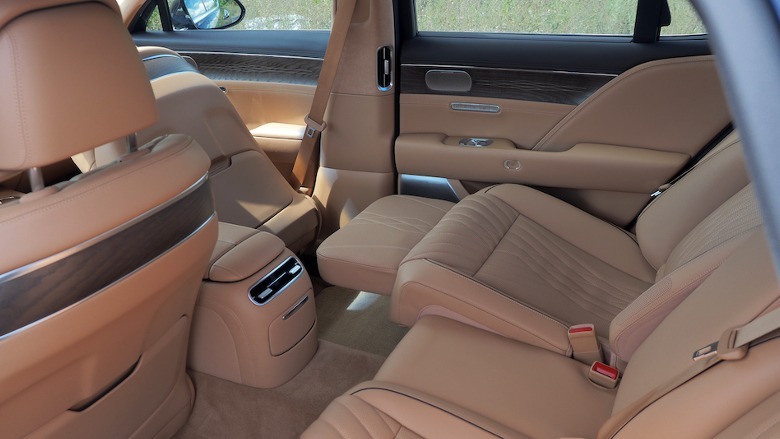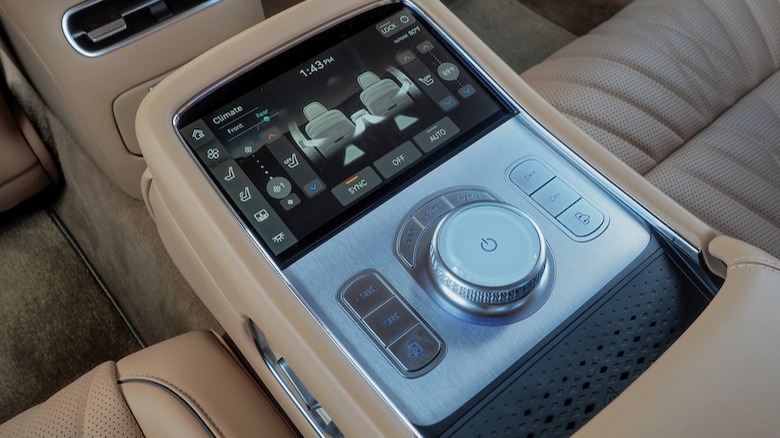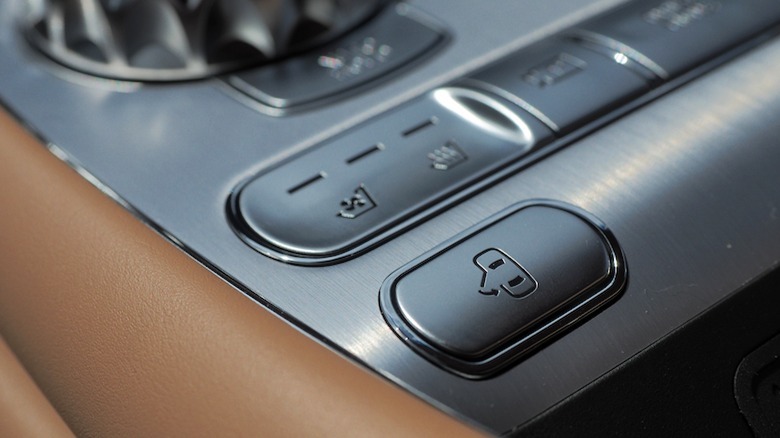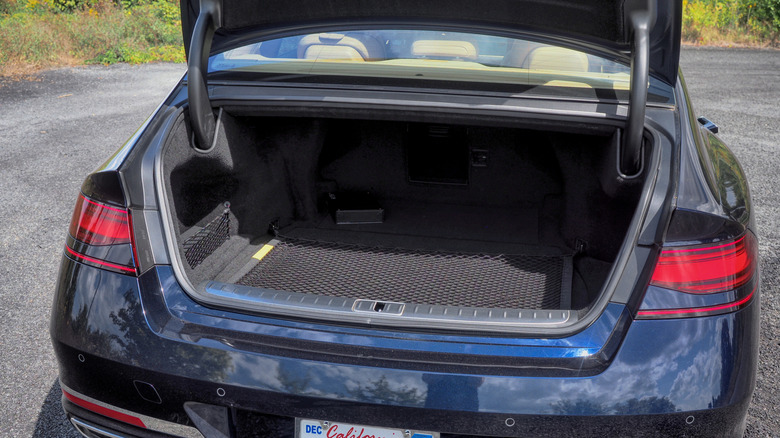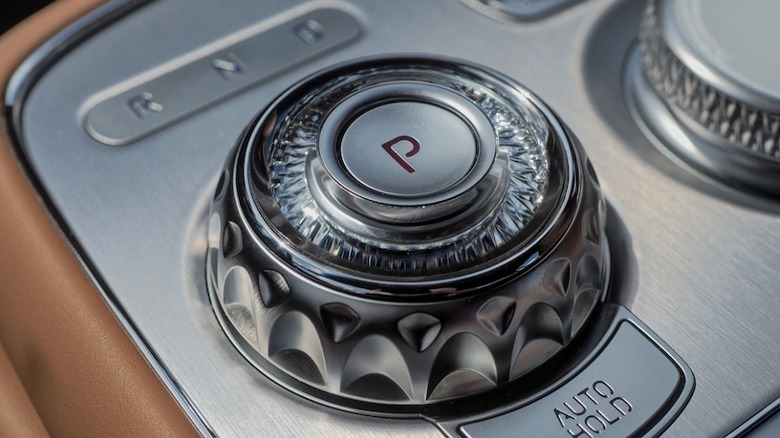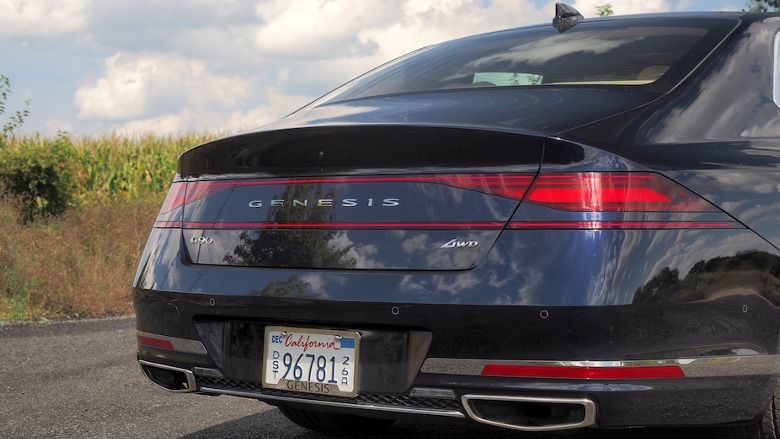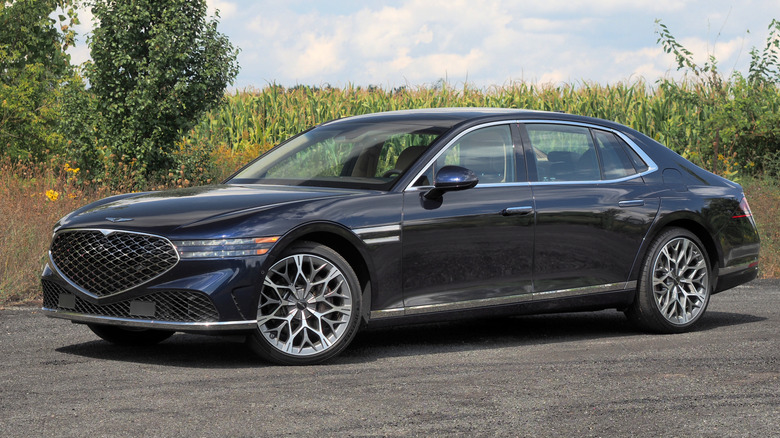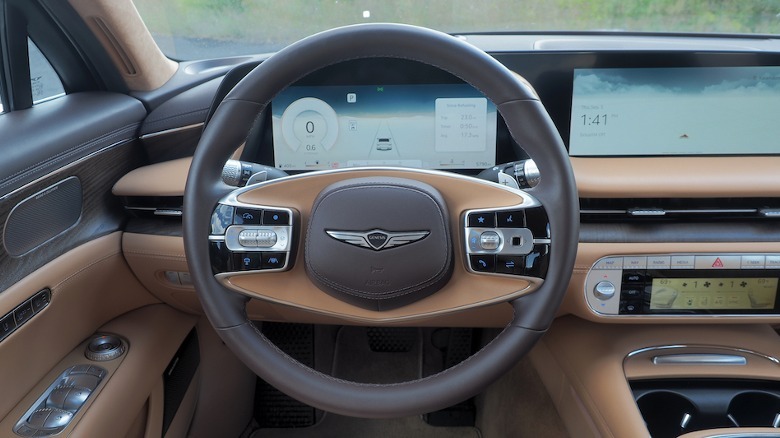2024 Genesis G90 Review: More Than Just Luxury On A Budget
- Smooth and refined V6 engine
- Comfortable cabin doesn’t overwhelm with tech
- Aggressively priced without feeling cheap
- Economy is lower than rivals
- Some tech foibles
- Trunk is relatively small
SUVs may be where the retail money is, but if you want to judge the success of a player in the luxury car set, the metric is still its flagship sedan. Mercedes-Benz and BMW set the benchmark with the S-Class and 7 Series, respectively, and threw down the gauntlet for skirmish upon skirmish as would-be luxe upstarts tried to take down the kings. The two big surprises about the 2024 Genesis G90, though, are just how quickly it became a genuine contender — and the route by which it achieved that.
Less than a decade since the G90 nameplate appeared, and the Genesis four-door is already in its second generation. It's a handsome sedan, big — as you'd expect — though some of Genesis' visual tricks minimize that from certain quarters. The large grille no longer seems quite so dramatic, given the snouts of many auto rivals these days, while the G90's double-whisker headlamps are distinctive (and echoed at the rear with the LED taillamps).
I like how the design stretches back behind the front wheel arches, too, not to mention how well Genesis' 21-inch wheels (an upgrade from the base 20-inch set) fill them.
The rear is where things get most interesting, though — a gathering of intersecting lines and angles that make no attempt to ape any other luxury four-door. There's something tailored to it, reminiscent of a well-structured Saville Row suit; the kink of the rearmost quarter-glass, its chrome trim, and the general surfacing at that point are particularly striking. Factor in the strong horizontal light bars, their pinstriping stretched taut across the sumptuous bow of the G90's trunk, and you might decide you prefer looking at the back of the Genesis more than the front.
Electrified for speed, not frugality
Depending on trim, there's electrification under the 2024 G90's hood, but it's not the same hybridization that we've seen some luxury rivals embrace in big sedans. While the entry-spec 3.5T AWD (from $88,400, plus $1,095 destination) has 375 horsepower and 391 lb-ft of torque from its twin-turbo V6, the 3.5T E-Supercharged AWD ($98,700 plus destination) adds a 48V electric supercharger to nudge that up to 409 horsepower and 405 lb-ft of torque.
Both get an 8-speed automatic transmission and electronically-adaptive dampers, though only the E-Supercharged version has air suspension.
It's a plush ride, certainly. Genesis' Preview-Electronic Control Suspension — effectively a camera scanning the road surface ahead — tries to preempt bumps and ruts and, if the standard Comfort mode isn't sufficiently serene, a special Chauffeur mode promises to make things even more luxurious. Great for those in the back, yes, but the experience at the wheel is pleasing as well.
The G90 has a sense of solidity and poise, and while the steering is unsurprisingly light, there's the same sense of refinement with a deep well of power that you get driving a Mercedes S-Class.
Where the S-Class pulls away is when you switch the G90 to Sport mode. Things get firmer, the gearshifts are a little more noticeable, and the rear-wheel steering on the E-Supercharger version helps slim down the sense of overall scale. Nonetheless, the Genesis is far from a sports sedan, even if the electric supercharging does keep things feeling urgent in a straight line.
Plenty of tech, but it doesn't overwhelm
Compared to the vast touchscreens that have been embraced by Mercedes and others, the G90's dashboard looks positively restrained at first glance. A single swathe of glass encompasses the fully-digital 12.3-inch driver cluster and a matching center touchscreen for the infotainment. A smaller touchscreen lower down the stack handles the climate control.
I suspect a lot of G90 buyers will appreciate Genesis' ongoing commitment to physical switchgear. In fact, for the most part, the car gets the tactile experience spot on: From the easily-toggled temperature adjustments, to the glorious knurling of the transmission shift knob and the infotainment scroll wheel alongside it, to the real metal buttons for the seat heating and ventilation, and switching drive modes.
Even many of the controls you don't normally look at, like those down by the driver's left knee, feel high quality. Only the glossy black plastic keys on the steering wheel avoid a clean sweep for Genesis' materials choices.
Things are functionally straightforward, too. Sure, there's a learning curve for where each control is — seat heating may be in the center armrest, but seat massage is handled by buttons on the doors — but no more so than navigating a touchscreen. Genesis' UI is reasonably user-friendly, too, though the lingering absence of wireless Apple CarPlay and Android Auto rankles. If you want smartphone projection, you'll need to bring a USB cable.
Power doors set the stage just right
Alternatively, you can simply leave the music off and enjoy the unexpectedly hushed experience in the G90's well-insulated cabin. A quiet engine helps there, certainly, the murmur from the 3.5T and its syrupy transmission making the combustion equivalent of a butler's surreptitious cough.
Those in the front get plush seats that, in addition to being heated and cooled, have massage. Only a small handful of programs — unlike the long list some rivals offer — are available, but all are on the admirably intense side. Usually I have to leave the seat massage on full to feel anything, but in the G90, I relented for the sake of my coccyx and notched it down a power level.
The outboard rear seats recline considerably, adjusted either by controls flanking the armrest, or through the touchscreen atop it. They also get heating and (in E-Supercharger spec) massage and ventilation: The display handles the rear climate, though oddly for this segment, it's a single zone, rather than providing individual adjustment for left and right rear passengers.
The right rear seat can, at a button-tap, cause the seat ahead to fold forward (assuming nobody is sat in it) so that a lower ottoman section can unfurl. Sadly, the G90's wheelbase isn't quite long enough to make sprawling out on that entirely comfortable for the tallest of passengers.
Arguably the best party trick is provided by the doors, which can be power closed at the touch of a button. The G90 isn't alone here — the BMW 7 Series' doors can power open, too, whereas the Genesis just offers power assistance for that. Though it might seem like a gimmick, reaching for the long (and heavy) doors once ensconced inside can definitely be a stretch that this button hypothetically solves.
The frugality argument for an Electrified G90
Though the cabin is spacious, the G90's trunk lags behind luxury rivals: Just over 12 cubic-feet in the 3.5T, and almost 11 cu-ft in the E-Supercharged version. That's a little less than an S-Class, and a fair amount lower compared to a Lexus LS or a BMW 7 Series.
With the electric supercharger focused on performance, not frugality, it's no surprise either that the G90 is thirstier than the mainstays of the high-end sedan segment. It'll do 17 mpg in the city and 24 mpg on the highway, the EPA says, for a total of 20 mpg combined. I just about hit that. A Mercedes S500 4MATIC, in contrast, is rated for 24 mpg combined, while the BMW 740i xDrive pushes that figure up to 27 mpg.
Honestly, given Genesis' generally excellent EVs, it's a shame the G90 is still going without even just a plug-in hybrid option. The Electrified G80 (from $74,375) demonstrates just how well a pure-electric drivetrain can deliver on refinement, but its rear accommodations can't live up to the pleasantries that the G90 offers.
2024 Genesis G90 Verdict
There's an odd mixture of old and new luxury in the G90. On the one hand, its striking looks — including some seriously avant-garde wheel options — and unusual interior trim choices leave it feeling fairly modern. At the same time, though, Genesis hasn't fully followed its counterparts at Mercedes and BMW into the world of ostentatious gadgetry. Compared to a Maybach's numerous dashboard touchscreens, or an i7's profligate fold-down widescreen TV for its rear seat passengers, the G90's interior feels more restrained.
Whether that's a plus or a minus depends on how you see your luxury transportation: A showcase of the latest and greatest tech that just so happens to have wheels as well, or fundamentally as a method of travel that can be made more pleasant by virtue of nicer materials and fancier seats. There's no wrong answer, though there can be a budget impact.
Want an all-wheel drive 7 Series with slick automatic doors? You're looking at nigh-on $110K, and still get less power than the Genesis. An S-Class with roughly matching equipment levels is a whopping $136K, and you don't even get Mercedes' vast dashboard display. Suddenly, the $101,400 (including metallic paint and destination fee) of this particular 2024 G90 seems like a bargain.
There's also badge prestige to consider, naturally, and both BMW and Mercedes have electrified and fully-electric versions which so far Genesis has ignored. The very fact, though, that we're not just viewing the G90 as an afterthought option for those on a stricter budget, but a genuine competitor in a fiercely-fought segment, demonstrates just how far Genesis has come — and how concerned the mainstays of luxury vehicles should probably be.
